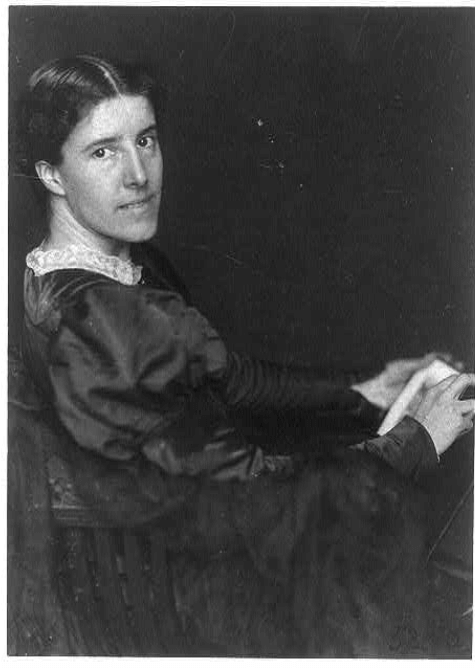VOTES FOR WOMEN
- Program
- Subject
- Location
- Lat/Long
- Grant Recipient
-
National Votes for Women Trail
-
House, People, Site
- Main St & Park St, Hartford, CT 06106, USA
- 41.756972, -72.675587
-
National Collaborative for Women's History Sites
VOTES FOR WOMEN
Inscription
VOTES FOR WOMENCHARLOTTE PERKINS GILMAN
SUFFRAGIST AND AUTHOR OF
"THE YELLOW WALLPAPER" 1892 &
"WOMEN AND ECONOMICS” 1898.
CHILDHOOD HOME NEAR HERE.
WILLIAM G. POMEROY FOUNDATION 2022
Suffragist and author Charlotte Perkins Gilman (1860-1935) was born and raised in Hartford, Connecticut. Prior to her second marriage in 1900, Gilman was known as Charlotte Perkins Stetson. She was related to John and Isabella Beecher Hooker, social reformers and founders of the Connecticut Woman Suffrage Association. Gilman herself became well-known for the short story, The Yellow Wallpaper, published in 1892. She also authored Women and Economics: A Study of the Economic Relation Between Men and Women as a Factor in Social Evolution, published in 1898, and many other literary works including short stories, collections of poetry, novels, and her autobiography, The Living of Charlotte Perkins Gilman. She also worked as editor and publisher of the monthly women’s rights journal, The Forerunner from 1909 to 1916.
Throughout her career, Gilman lectured on women’s suffrage, ethics, economics, and sociology. The March 22, 1910 edition of the Hartford Courant reported on one of her lectures on women’s suffrage given at a meeting of the Hartford Political Equality League. Her lecture was recorded in part:
“We have a great gain in the numbers of those who are interested, but still the chief strength of the opposition to women’s suffrage is that it will be an injury to the women as mothers. We have always divided human life into two great and broad classes, men and women. But humanity is of greater importance than either man or woman. Those who oppose women’s suffrage say that women want to become men. Women do not want to become men. They simply want to take their place on the great common ground of humanity.”
In addition to women’s suffrage, Gilman advocated for broad equal rights for women and in the December 18, 1916 edition of the Hartford Courant, Gilman was described as “America’s leading feminist.”
By August 1920, efforts of suffragists paid off with the passage and subsequent ratification of the Nineteenth Amendment to the United States Constitution which states, “The right of citizens of the United States to vote shall not be denied or abridged by the United States or by any state on account of sex.”

